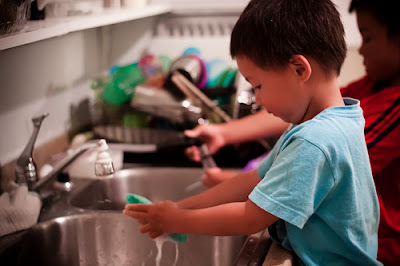Have you ever stopped to ask yourself this question, what is one of the most important things that I can do for my child? Something that will bring them joy and make them happy. You want it to be impactful and long lasting right? Something that will effect their lives in a positive way, right? Every parent or caregiver wants their children to be happy, safe and healthy and be the best they can be.
Parenting Guide : The Most Important Things You Can Do For Your Child
How do you think that can happen? It can happen through taking care of yourself. Self care is one of the most important gifts you can give to your child. Not only does it benefit you and your child but the entire family unit as a whole even if it's just you and your child. A happy parent helps the whole family to be happy and makes a happy child.When you take care of yourself you are communicating and being a role mode of self love for your child. You are teaching them to take care of and value themselves. You are teaching them self respect and that they matter and are worth the extra time it takes to take care of themselves.
What happens with you effects your child. It may not be so obvious at first, especially if they are really young and don't have the words to express how they feel or are even aware of their emotions. If you are not in a good mood this effects your child. When you are not in a good mood your energy is low, you are stressed and not able to tolerate much. You tend to be short tempered and irritable. When your emotions are compromised this effects your thinking and judgement as well as clarity.
WAYS TO FIND TIME FOR SELF CARE
1. First identify and remember the things that bring you joyIt doesn't have to be anything major. It could be as simple as remembering to take a few deep breaths, run yourself a hot bubble bath, buy flowers, or read. It could be taking a class of some sort or you may love learning. Brain storm and write down everything that comes to mind don't leave anything out and everything counts. Remember to include the things that cost money and those that don't. You want to create a feeling of ease, deliciousness and feelings of being nurtured and cared for.
2. Write down the time it takes to accomplish those things
The reason why you want to have the time next to the item is because one of our biggest excuses is "I don''t have the time or where will I find the time". That won't be the excuse anymore because now you will have an idea of the time that it takes to accomplish this self care item. This will be putting the odds in your favor and also insure that you get it in.
3. Plan and prepare
You want to make sure you have the items that you need on hand ahead of time and not have to do something like run out to the store. Arrangements such as a babysitter or having someone pick up your kids fall into this category. Getting and asking for help is also part of preparing.
4. Schedule It!!!
Now that you know what it is that you would like to do, find a space of time in your day to get it done. Some of the best times are early in the morning before everyone gets up or late at night after everyone has gone to bed. Don't leave out other times during the day like when you are waiting for an appointment or for them to finish a sport or class. Or any other brake that you have during the day.
Parenting Guide : The Most Important Things You Can Do For Your Child
THIS IS VERY IMPORTANT WHICH IS WHY IT'S IN BOLD PRINT. SELF CARE IS AN ESSENTIAL NOT A LUXURY!!
Schedule self care every single day. It is not a luxury or something that you do once in a while or when you have the time or on some special occasion. It has to become a habit, a ritual like bathing in the morning before your day. It has to be as habitual as brushing your teeth and combing your hair. Look at it as your are making deposits into your bank of well being, care and self love.When you make this a habit you will find you mood and outlook will be brighter. You will be well equipped to deal with whatever comes your way. And even if you aren't at least you will have reserves to pull from. REMEMBER YOU ARE SO WORTH IT!!!! Let me know how you make out. Make it easy, pleasurable and fun and it can also be small. Be forgiving and compassionate with yourself and realize you wont get it perfect right of out the box. But know you can do it.




.jpg)














